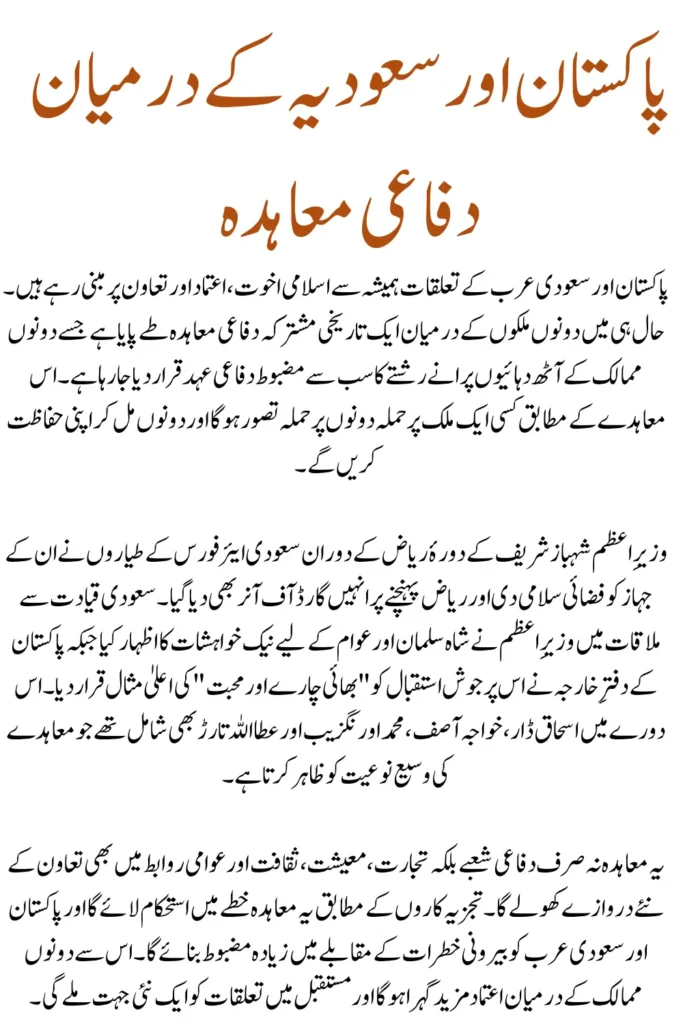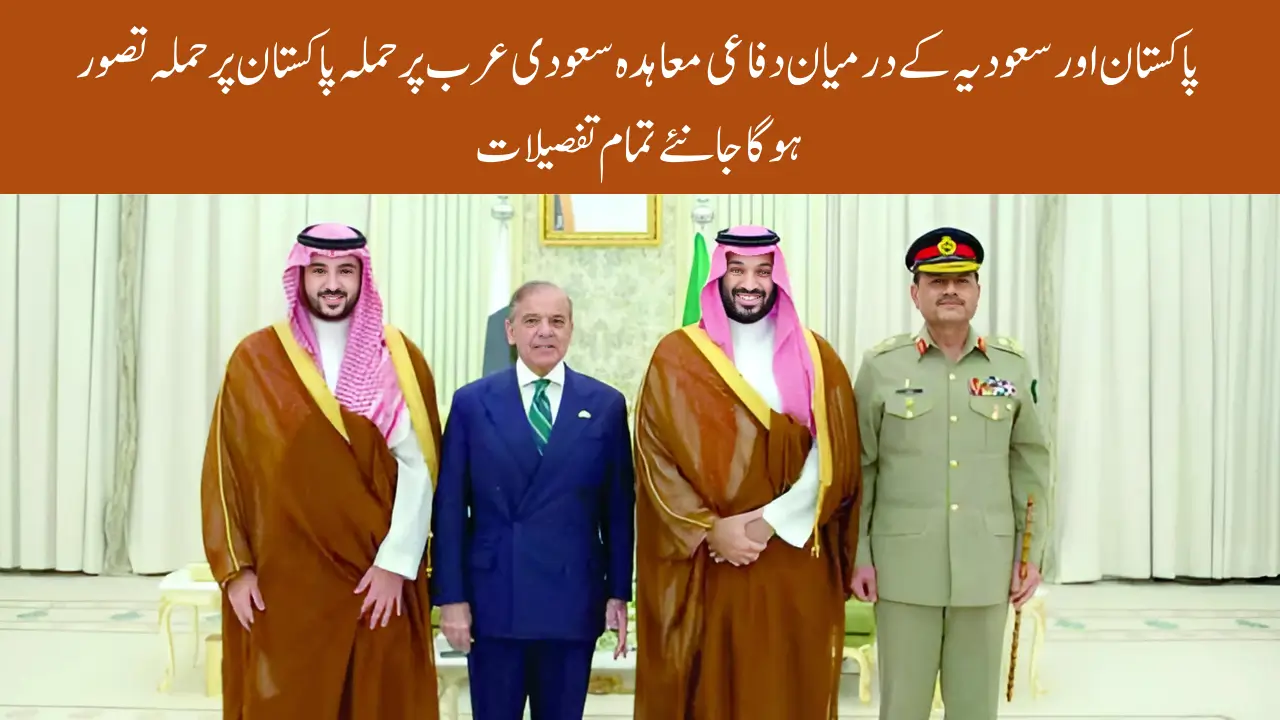Pakistan and Saudi Arabia Mutual Defense Agreement
Pakistan and Saudi Arabia have shared a special relationship for more than eight decades, rooted in Islamic brotherhood, military cooperation, and strategic trust. Both countries have supported each other in times of need, whether in matters of security, economy, or regional stability. The newly signed Mutual Defense Agreement takes this long-standing bond to a historic new level, making it one of the strongest defense commitments between the two nations.

Background of Pakistan and Saudi Arabia Relations
Since Pakistan’s independence in 1947, Riyadh and Islamabad have maintained close ties. Saudi Arabia has often extended financial assistance during Pakistan’s economic challenges, while Pakistan has provided military training and defense cooperation to the Kingdom. From Pakistani troops supporting Saudi Arabia during the Gulf War to frequent joint military exercises, both nations have consistently stood by one another.
This new defense pact builds on that legacy and reflects a shared vision for peace and stability in the Middle East and South Asia.
Also Read: CM Punjab Free Solar Panel Scheme 2025 Know Full Details Step by Step
Key Highlights of the Mutual Defense Agreement
- Mutual Defense Clause: Any attack on one country will be treated as an attack on both, ensuring collective protection.
- Defense Strengthening: The agreement focuses on joint deterrence, intelligence sharing, and military readiness.
- Regional Stability: By working together, Pakistan and Saudi Arabia aim to counter external threats and play a stronger role in stabilizing their neighborhoods.
Diplomatic Talks & Warm Gestures During PM Shehbaz’s Visit
Prime Minister Shehbaz Sharif visited Riyadh to finalize this historic deal. Upon entering Saudi airspace, his aircraft was escorted by Saudi Air Force jets a rare honor reserved for the closest allies. On arrival, he was given a guard of honor, highlighting the depth of bilateral respect.
During his meetings, PM Shehbaz thanked King Salman and the Saudi leadership for their hospitality and conveyed best wishes for the Saudi people. Pakistan’s Foreign Office praised the reception as a “strong gesture of brotherly love and respect.”
Pakistani Delegation and Their Roles
The importance of the agreement was highlighted by the presence of a high-powered Pakistani delegation:
- Ishaq Dar – Deputy Prime Minister
- Khawaja Asif – Defence Minister
- Muhammad Aurangzeb – Finance Minister
- Attaullah Tarar – Information Minister
The inclusion of economic and information ministers shows that this pact is not only about defense but also about trade, investment, and public diplomacy.
Wider Impact & Future Cooperation
Beyond defense, the agreement is expected to open doors in multiple areas:
- Defense & Security: Joint training programs, counter-terrorism strategies, and technology transfer.
- Trade & Economy: Saudi investment in Pakistan’s energy sector and industrial projects.
- Cultural & People-to-People Exchange: Scholarships for Pakistani students, expanded labor opportunities for Pakistani workers, and stronger tourism ties.
This holistic cooperation shows that the partnership is strategic as well as people-focused.
Strategic Importance of the Agreement
This pact carries weight beyond Pakistan and Saudi Arabia. It strengthens the regional balance of power and sends a clear signal of solidarity against external aggression.
For Pakistan, it complements partnerships with China and Turkey, while for Saudi Arabia, it enhances its security network in a region where rivalries with countries like Iran and growing ties with India are constantly evolving.
Why This Agreement Matters
- It cements a new era of defense cooperation.
- It provides credible deterrence against threats.
- It reinforces brotherhood and trust that go beyond politics.
- It builds upon existing collaborations in energy, trade, and cultural exchange.
Reactions and Analysis
Pakistan’s Foreign Office described the agreement as a milestone in bilateral relations. Analysts see it as a move that will not only secure both countries but also strengthen their bargaining power in global diplomacy.
Some experts believe this deal will provide Pakistan with greater defense confidence, while for Saudi Arabia, it ensures a reliable ally in South Asia.
FAQs
What is the Pakistan an Saudi Arabia Mutual Defense Agreement?
It is a pact where both countries pledge to defend one another in case of external aggression, while also deepening military and economic cooperation.
Who were part of the Pakistani delegation?
Deputy PM Ishaq Dar, Defence Minister Khawaja Asif, Finance Minister Muhammad Aurangzeb, and Information Minister Attaullah Tarar.
How does this deal affect regional security?
It strengthens security in the Middle East and South Asia, countering threats and promoting stability.
What other areas are included apart from defense?
Trade, economic partnerships, cultural exchange, and people-to-people connectivity.
Conclusion
Pakistan and Saudi Arabia Mutual Defense Agreement is more than just a security pact it is a symbol of Islamic unity, strategic cooperation, and long-term trust. With both nations pledging to protect each other, deepen economic ties, and expand cultural exchanges, this agreement marks the beginning of a new era in bilateral relations.
As the region faces new challenges, this partnership will serve as a cornerstone of peace, stability, and shared prosperity.

